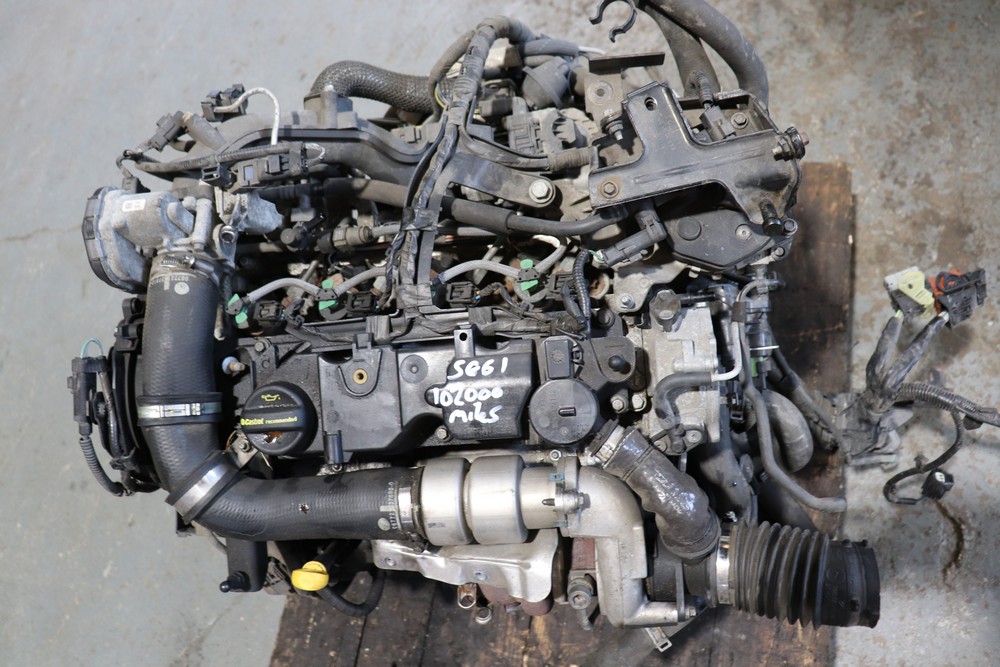Opening the Power of Engines: A Comprehensive Guide to Performance and Performance
Comprehending the complex technicians of engines is critical for both efficiency fanatics and daily motorists. The responses might redefine our technique to engine performance and effectiveness in methods that are both enlightening and vital.
Comprehending Engine Fundamentals
What comprises the essential mechanics of an engine? At its core, an engine is a machine designed to transform gas into mechanical power with a series of regulated surges or combustion procedures.
The crankshaft after that transforms this straight movement right into rotational power, which inevitably powers the car. The camshaft manages the opening and closing of the valves, managing the intake of air and gas and the expulsion of exhaust gases. In addition, the engine relies upon a thoroughly calibrated fuel-air blend, ignition system, and cooling system to make certain ideal efficiency and efficiency.
Recognizing engine fundamentals additionally includes identifying the relevance of engine cycles, such as the four-stroke cycle, which consists of intake, compression, exhaust, and power strokes. Each phase is important in ensuring the engine works smoothly and effectively. Mastery of these basic mechanics prepares for discovering much more complicated engine characteristics and efficiency metrics, vital for maximizing both power output and effectiveness.
Key Efficiency Metrics
Trick performance metrics are vital for reviewing an engine's efficiency and power result, supplying beneficial insights for both producers and consumers. These metrics work as standards for engine performance, allowing for notified choices in production, investing in, and design.
One of the primary metrics is horsepower, which quantifies the engine's ability to carry out job over time. Torque, gauged in pound-feet, is an additional crucial metric that shows the engine's rotational pressure, straight impacting acceleration and hauling capability. Fuel effectiveness, normally determined in miles per gallon (MPG) or liters per 100 kilometers (L/100km), assesses just how effectively the engine transforms fuel into motion, affecting functional expenses and environmental considerations.
Additionally, thermal performance actions exactly how well an engine transforms gas energy into valuable job, exposing insights into energy losses largely via warm. Emission degrees, consisting of carbon dioxide and NOx, are also vital, reflecting the engine's ecological effect and compliance with regulatory criteria.

Tuning Methods for Effectiveness
Tuning strategies play a substantial duty in boosting engine efficiency by optimizing efficiency metrics recognized in earlier discussions (ford fiesta engine). Different techniques exist to adjust an engine, each adding to boosted gas economy and minimized exhausts
One reliable method is readjusting the air-fuel ratio, ensuring the go to my blog engine operates within the optimum burning routine. A leaner blend can boost gas performance, however it should be balanced to stop misfires or engine knock. Additionally, reprogramming the engine management system can recalibrate parameters such as ignition timing, which better boosts effectiveness while preserving power output.
Another vital strategy entails customizing the intake and exhaust systems. Updating to high-performance air filters and exhaust headers can minimize back pressure, assisting in better air movement. This permits the engine to breathe even more easily, resulting in enhanced burning performance.
Additionally, the implementation of innovative tuning devices, like dyno screening, supplies accurate information that allows targeted changes. On a regular basis checking these performance metrics guarantees that adjusting efforts produce the desired performance end results. Collectively, these strategies not only strengthen engine performance but also add to long-term sustainability in engine operations.
Upkeep for Optimal Efficiency
Routine engine maintenance is crucial for accomplishing optimum performance and durability. A properly maintained engine not just operates efficiently however additionally reduces the danger of costly repair work and malfunctions. Secret components needing routine focus include oil, filters, belts, and trigger plugs.
Altering the engine oil at advised periods is crucial, as oil lubes moving parts and prevents overheating. Likewise, changing oil and air filters ensures that pollutants do not hinder engine function. Ignoring these parts can bring about minimized performance and potential engine damage.
Additionally, examining and replacing worn belts and hoses is important to stop unexpected failings. Timing belts, in specific, must be changed according to the manufacturer's schedule to avoid devastating engine damage.
Spark plugs should additionally be examined and changed as essential, given that they play an essential role in ignition and gas effectiveness.
Future Patterns in Engine Innovation
Embracing developments in technology, the future of engine layout is poised to change efficiency and efficiency across various applications. Crossbreed and completely electric powertrains are becoming progressively conventional, supplying minimized discharges and improved gas efficiency.
Additionally, technologies in products scientific research are resulting in lighter, more powerful components that boost engine efficiency while decreasing energy consumption. Advanced production methods, such as 3D printing, that site permit the creation of complex geometries that enhance airflow and thermal monitoring, hence optimizing combustion processes.
Furthermore, the combination of expert system and equipment understanding is readied to transform engine diagnostics and efficiency adjusting. These innovations can assess large amounts of information in genuine time, allowing predictive upkeep and customized performance improvements.
Verdict
In conclusion, unlocking the power of engines calls for a complete understanding of their mechanics and performance metrics. Applying effective tuning strategies and adhering to regular upkeep practices substantially boost engine capabilities.
Additionally, the engine counts on a meticulously calibrated fuel-air blend, ignition system, and cooling system to guarantee optimum efficiency and performance.
Recognizing engine basics likewise entails identifying the value of engine cycles, such as the four-stroke cycle, which consists of consumption, power, exhaust, and compression strokes. Mastery of these basic auto mechanics lays the groundwork my blog for checking out a lot more intricate engine characteristics and efficiency metrics, necessary for maximizing both power output and effectiveness.

Accepting developments in innovation, the future of engine design is positioned to revolutionize efficiency and effectiveness throughout various applications.
Comments on “How a Well-Maintained Ford Fiesta Engine Improves Vehicle Longevity”